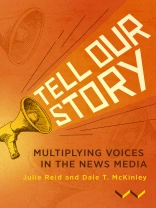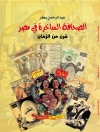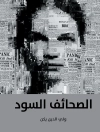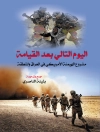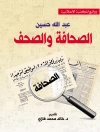The dominant news media is often accused of reflecting an ‘elite bias’, privileging and foregrounding the interests of a small segment of society, while ignoring the narratives of the majority. Tell Our Story investigates the problem of disproportionate media representation and offers a hands-on demonstration of listening journalism and research in practice to promote a more active engagement between journalists and local communities. In the process the authors dismiss the idea that some groups are voiceless, arguing that what is often described is a matter of those groups being deliberately ignored. The authors focus on three communities in South Africa, each presenting with differing but crucial historical, geographical and socio-political ‘characteristics’ of the post-1994 period. Adopting an audience-centred approach, the authors delve into the life and struggle narratives of each community. They expose the divides between the stories as told by the people in the community who have lived experience of these events, and the way in which these stories are understood and shaped by the media. The implications of the media’s routine misrepresentation of the voices of the marginalised and poor for media diversity, media credibility and ethics, media education and training, as well as media research are unpacked and the authors offer a useful set of practical guidelines for journalists on the practice of listening journalism.
विषयसूची
List of Figures
Acknowledgements
Abbreviations and Acronyms
Chapter 1 The Importance of Voice and the Myth of the ‘Voiceless’ – Julie Reid
Part 1 From the Inside: Voice(s) from the Ground
Chapter 2 Community Perspective, Experience and Voice – Julie Reid and Dale T Mc Kinley
Chapter 3 Glebelands Hostel, Durban – Dale T Mc Kinley
Chapter 4 Xolobeni, Eastern Cape – Dale T Mc Kinley
Chapter 5 Thembelihle Community, Johannesburg – Dale T Mc Kinley
Part 2 From the Outside: Dominant Voice
Chapter 6 Dominant Media Telling and Elite Communication – Dale T Mc Kinley
Chapter 7 The Political Economy of Dominant Power and Storytelling – Dale T Mc Kinley
Part 3 New Trajectories for Journalism and Voice(s)
Chapter 8 Media Diversity and Voice(s) – Julie Reid
Chapter 9 Rethinking Media Freedom, Revamping Media Ethics – Julie Reid
Chapter 10 Planting the Seeds of Change – Julie Reid
Notes
Bibliography
Index
लेखक के बारे में
Dale T Mc Kinley is Research and Education Officer for the International Labour, Research and Information Group, and Senior Research Associate in the Department of Anthropology and Development Studies at the University of Johannesburg.
